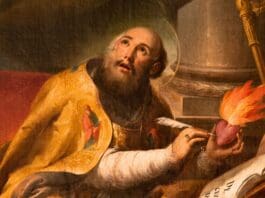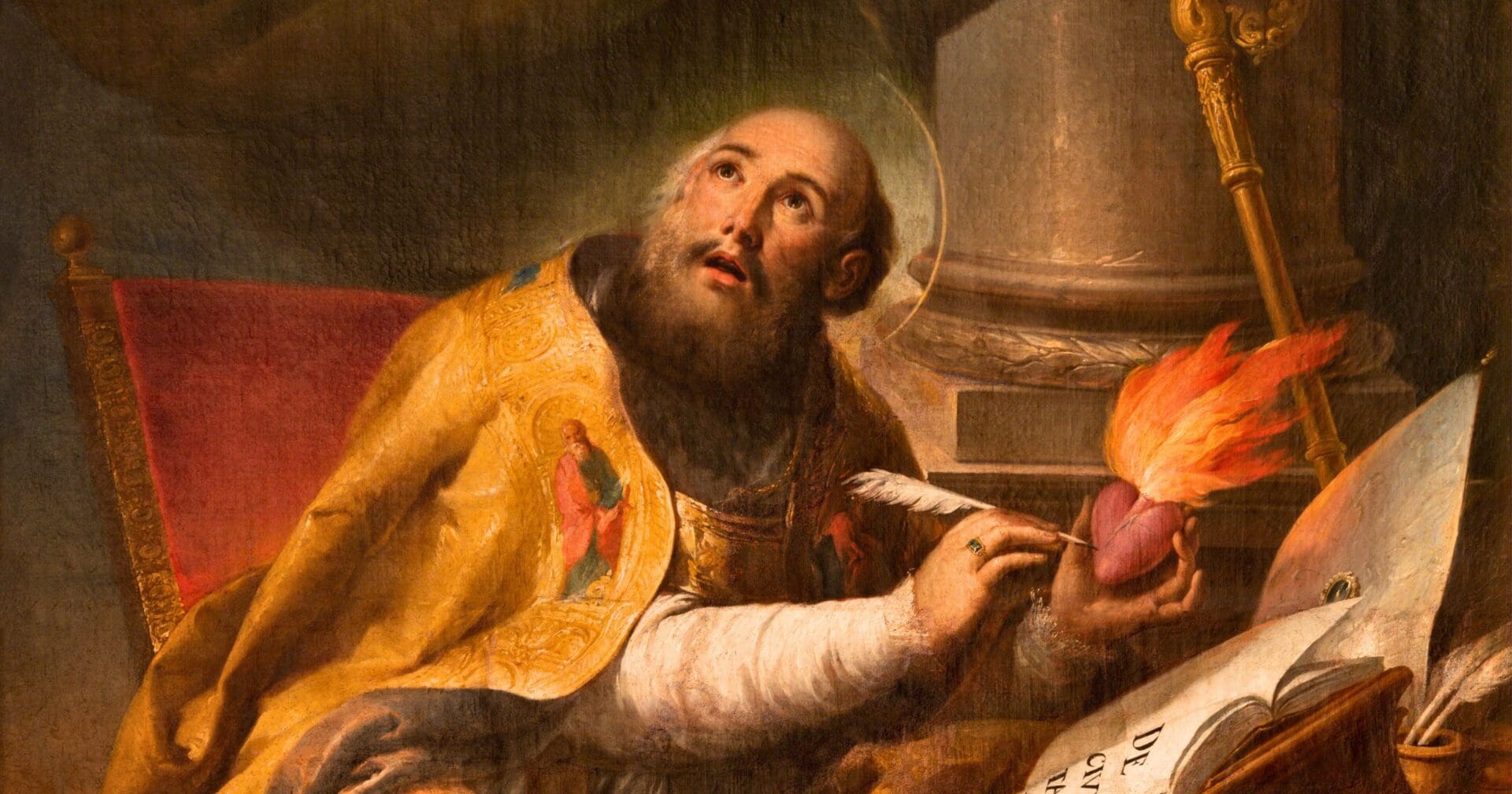
Born in Tagaste (modern-day Algeria) on 13 November 354, Saint Augustine’s journey from a rebellious youth to one of the most influential theologians is an inspiring story.
Augustine’s father, Patricius, was a pagan official in Tagaste but converted to Christianity on his deathbed. His mother, Saint Monica, was a devout Christian. She had young Augustine marked with the cross and enrolled him as a catechumen but was unable to ensure his baptism. Augustine once fell critically ill and agreed to baptism. However, upon recovery, he renounced Christianity.
Monica ensured Augustine received a comprehensive religious education. He studied in Tagaste and Madaura till he was sixteen. Then, he moved to Carthage in 370. The city’s hedonistic pleasures soon entranced Augustine, leading him into a life of excess. He lived in a sinful relationship, resulting in the birth of his son, Adeodatus, in 372.
At 373, Augustine embraced Manichaeism, a religion promising a free philosophical exploration. Yet, after nine years and a disappointing encounter with a leading Manichean figure, Faustus of Mileve, he left the faith.
Augustine traveled to Italy in 383, delving into Neo-Platonic philosophy. In Milan, he met Ambrose and became his student. A transformative experience under a fig tree in 386 led him to Christianity. Ambrose baptized him in 387, bringing immense joy to Monica. However, Augustine faced profound grief shortly after when Monica passed away.
Augustine returned to Tagaste and led a quasi-monastic life, focusing on prayer and religious studies. In 391, he was ordained a priest. He became coadjutor-bishop of Hippo at 42. From 396 until his death in 430, Augustine led the diocese amidst the Roman Empire’s decline. He died on 28 August 430, as Vandals approached Hippo. Today, his feast day is on the same date.
Saint Augustine’s writings on Christian Revelation rank among the most influential Christian texts. His works, especially “Confessions,” “The Trinity,” and “The City of God,” present pioneering thoughts on Christianity’s opposition to worldly values. He also extensively wrote about his debates with the Manicheans, Pelagians, and Donatists, influencing Christian thoughts on Creation, Grace, the Sacraments, and the Church.
Editorial credit: Renata Sedmakova / Shutterstock.com
The post Saint Augustine appeared first on uCatholic.
Daily Reading
Monday of the Fourth Week of Advent
Reading 1 Mal 3:1-4, 23-24 Thus says the Lord GOD:Lo, I am sending my messengerto prepare the way before me;And suddenly there will come to the templethe LORD whom you…
Daily Meditation
Messages From Above
Click here for daily readings Have you ever thought about how many inspirations we may reject in one day because we don’t believe they were from God. The next question…




